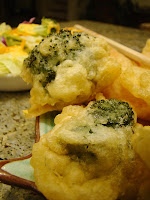In this article, game designer Sande Chen delves into the parental guilt associated with app usage, as documented in the book, Baby, Unplugged.
Happy Labor Day! Hope you're having a good holiday and not working :)
In the previous months, I've been following up on research about kid games, especially those for the preschool set. I've had several conversations with parents whose children use apps and with those who weren't using apps of any kind. There was a wide range of opinions. In the latter part of this research, I found myself saying, "No judgment, just questions," mainly because I started to feel like people thought using apps with preschool kids was a touchy subject. I didn't think it was, but clearly, there was some kind of guilt trigger going on about giving a kid a tablet at a young age, or for not watching or monitoring the kid on the tablet. I just found it strange that quite a few parents didn't seem to have the same kind of inhibition about kids watching TV.
This feeling of parental guilt is more clearly described in
Baby,Unplugged, a book released during the pandemic and written by a journalist investigating the over $46 billion babytech industry. In the book, author Sophie Brickman wonders if app usage could be compared to secondhand smoke. When she tries to gray out her screen or lock up her iPhone, she finds she really doesn't want to do that. This may seem extreme, but I found that parents who didn't want their kids having any knowledge of a tablet were most successful when they didn't have a tablet and never used their phone beyond calling people.
Later, she concludes that it's probably a stretch to think that parental app usage causes deep emotional damage to kids.
But what about the flip side: How does app usage affect kids using the apps? Brickman relates an anecdote of a teacher noting that a little girl who could digitally maneuver blocks on an app was at a loss as to what to do when faced with actual real-life blocks. It occurs to me that this is the age-old notion of television rotting one's brain except that it's apps that are rotting kid brains. Brickman does her own survey of preschool apps, which I find problematic because she excluded apps with subscriptions or in-app purchases, and finds a garbage heap. Free apps targeting preschoolers do tend to be advertising-based and questionably educational.
Brickman ends up interviewing the developers at
Sago Mini,
Toca Boca, and Khan Academy, entities that develop highly recommended apps for preschoolers. Sago Mini and Toca Boca are owned by the same company and follow the mantra that "Fun is Learning." Their apps are open-ended and promote creativity. Still, she can't shake the feeling that shaving a cartoon lion is not altogether educational.
Khan Academy Kids, on the other hand, offers a very structured learning plan combined with gamification. It covers core subjects and is
proven to improve pre-literacy skills. Brickman likens Toca Boca apps to addictive baby puffs, which are not as bad as cotton candy, and
Khan Academy Kids to broccoli, but more like broccoli tempura, something you'd want to eat. Which would you want: Baby puffs or broccoli tempura?
In the end, Brickman has mixed feelings. In desperation, she finds herself downloading an app recommended by a doctor to help with a toddler bedtime meltdown.
In my next blog post, I'll discuss more about how preschool apps can help, how to use them, and why designing specifically for a preschooler's level of development is critical.
Sande Chen is a writer and game designer with over 20 years of experience in the industry. Her writing credits include Independent Games Festival winner Terminus and the PC RPG of the Year, The Witcher, for which she was nominated for a Writers Guild Award in Videogame Writing. She is the co-author of Serious Games: Games That Educate, Train, and Inform, a founding member of the IGDA Game Design SIG, and an expert in the field of educational game design.


No comments:
Post a Comment